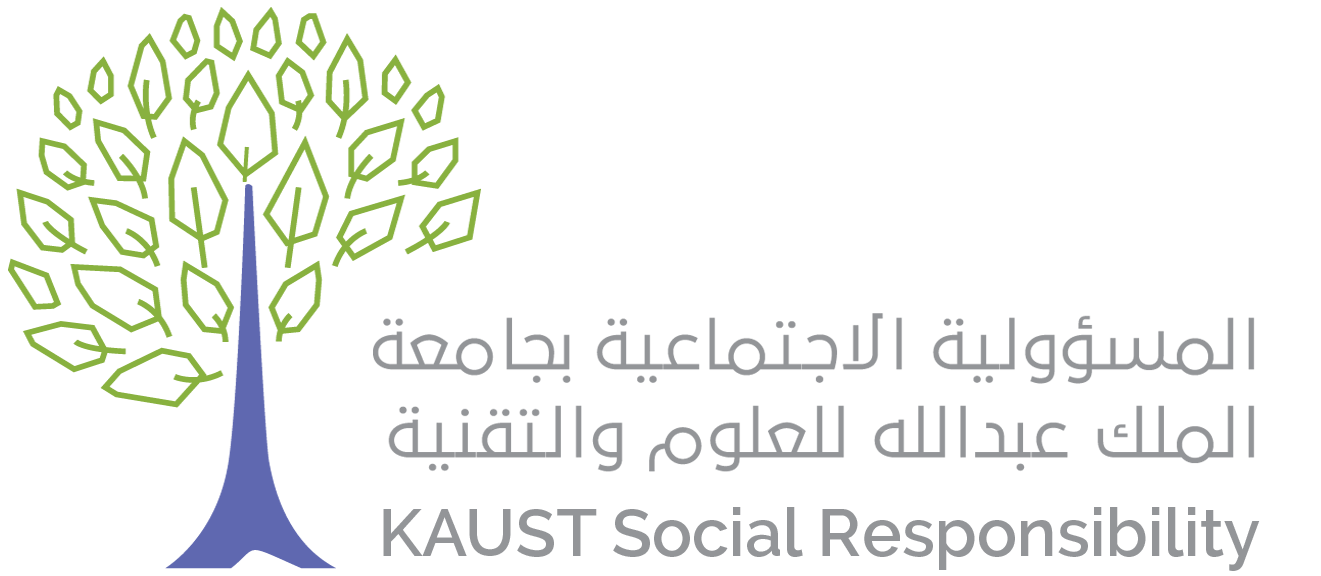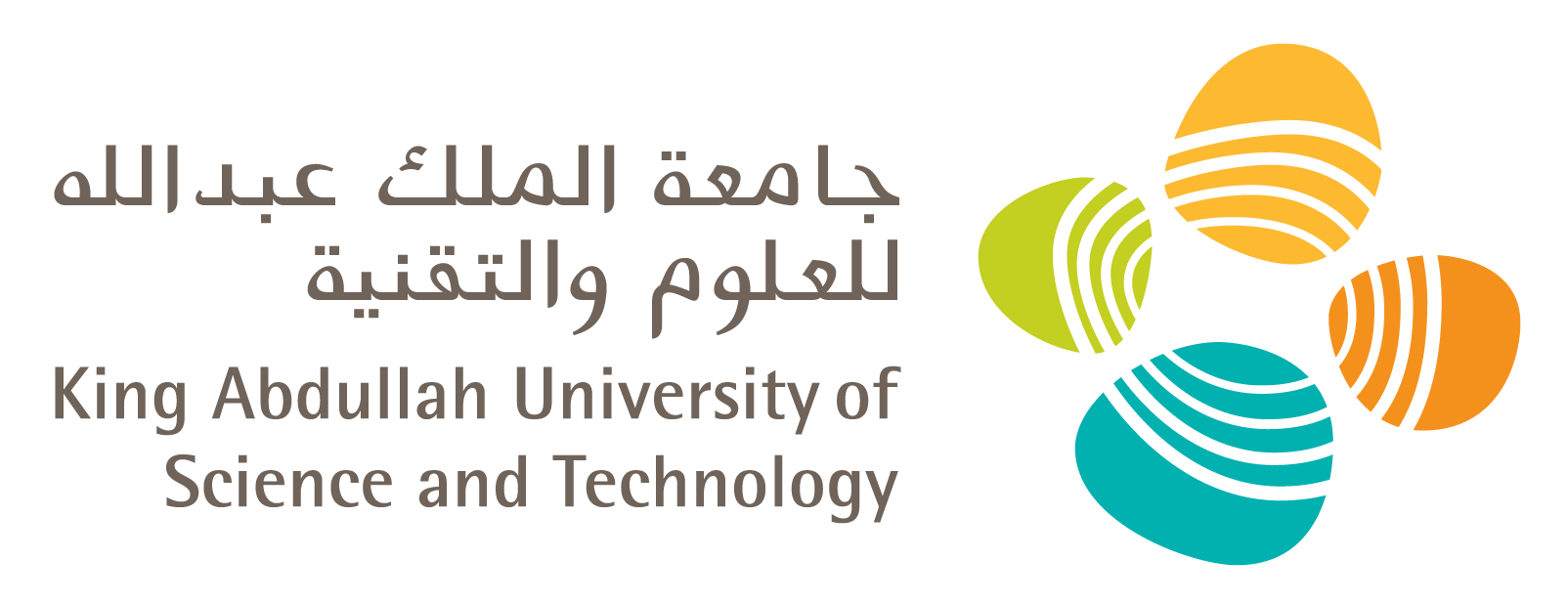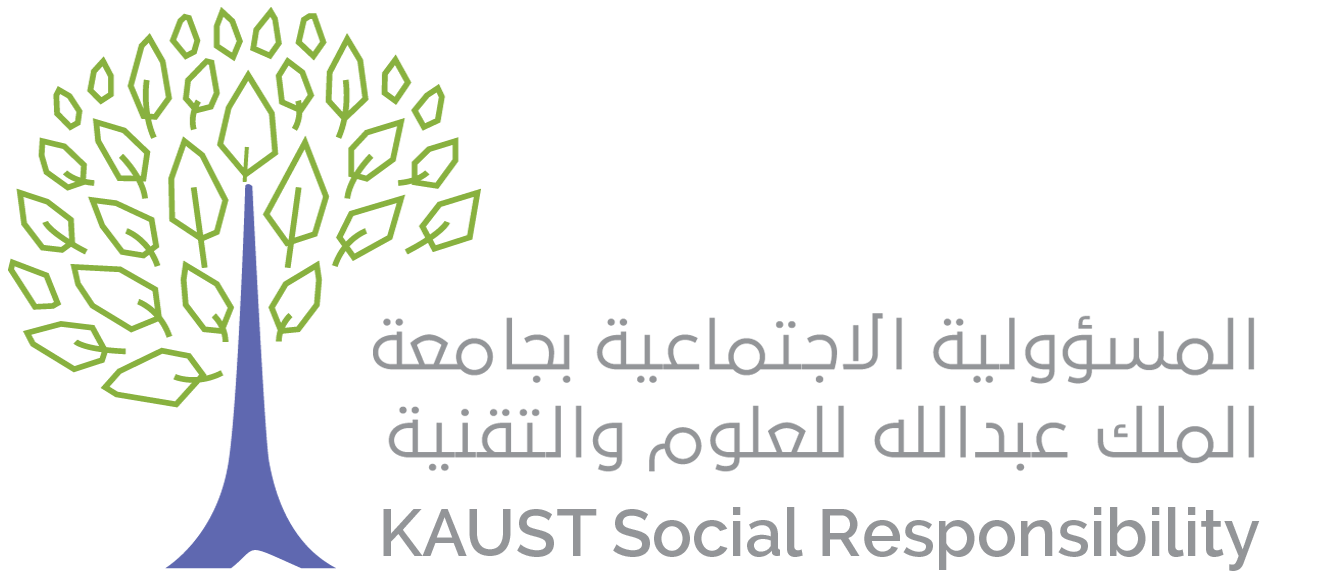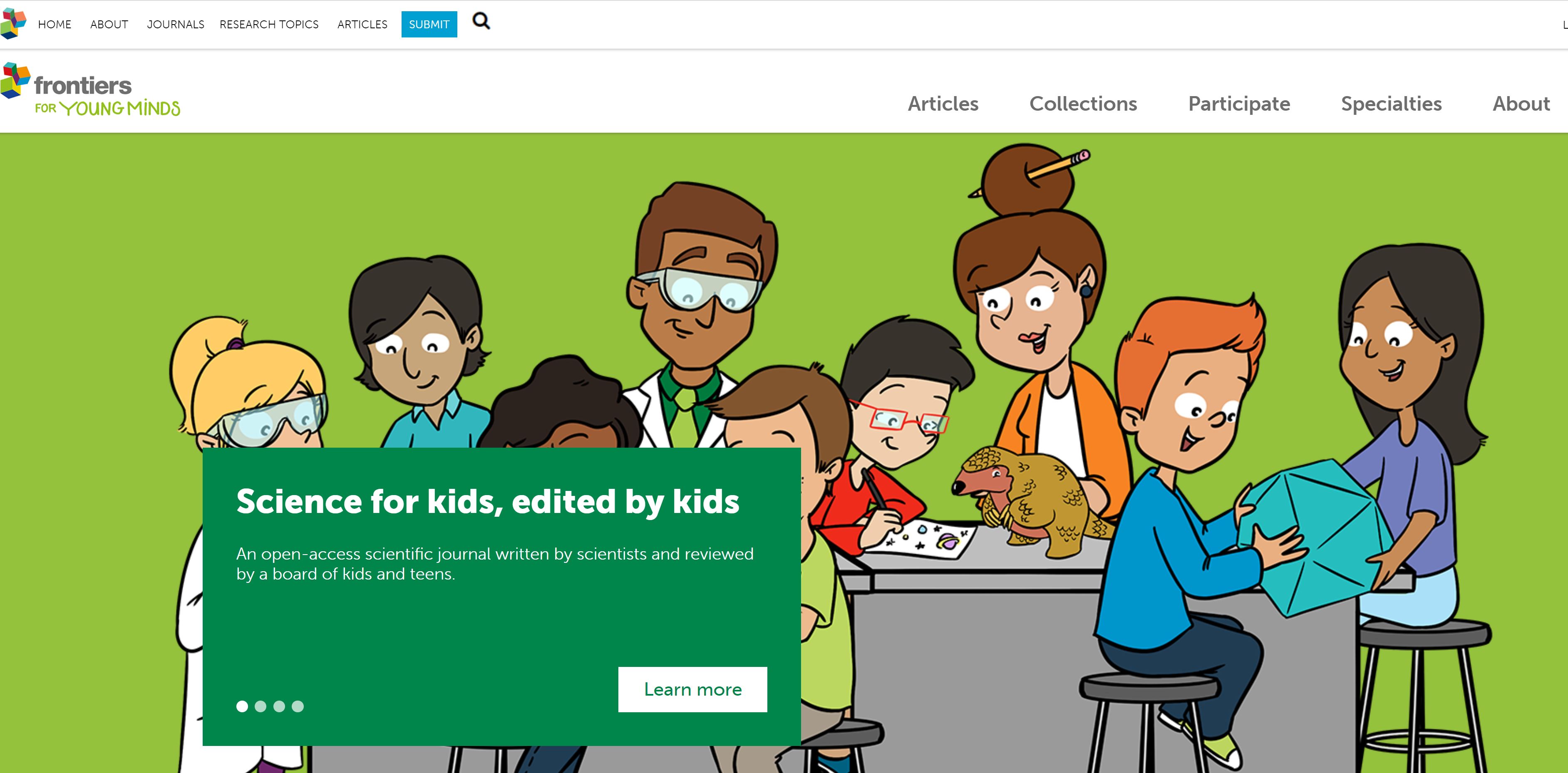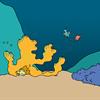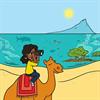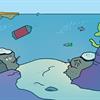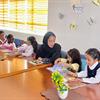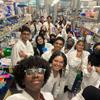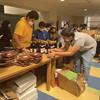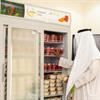Ten science students from Thuwal High Schools are the first Saudi public school students to contribute as reviewers to Frontiers for Young Minds, a dynamic, jargon-free, international online science journal. The two teams of students linked up with Rúben Costa, a Bioscience PhD student at KAUST, and fellow KAUST students and faculty, working together to transform highly-technical science papers into interesting texts accessible for all readers.
Frontiers for Young Minds emulates a traditional science journal as a repository for published papers, but you do not have to be a scientist to understand the content. Each paper has been reviewed by a panel of school age students, who mark, edit correct and suggest modifications to the author. Costa noticed a gap in the Young Minds knowledge base and believed KAUST was uniquely positioned to start the first collection of Marine Science information. Fueled by a passion for encouraging and improving young learners’ access to scientific knowledge, Costa sees Young Minds as an ideal opportunity to connect KAUST with local schools, enabling its scientists to communicate their research to broader and younger audiences. Working with his supervisor Professor Christian Voolstra, they created the Collection,”An Alien Place on Earth: The Red Sea as a Model for Future Oceans”, a public-friendly, up-to-date repository of scientific research on the Red Sea. KAUST is creating a number of ‘firsts’ with Young Minds – in addition to supporting the first Saudi public school reviews, the Collection is the first to focus on the Red Sea; it is the first Collection contribution from Saudi Arabia and also the first from the Middle East.
To create this first Collection, Costa encouraged KAUST Professors, Post-docs and PhD students to rewrite and submit their relevant articles for reviewing by local high school students from Thuwal, and The KAUST School, and gathered fellow KAUST PhD students Marcelle Barreto, Maha Cziesielski, Ghaida Hadaidi, Royale Hardenstine and Matthew Tietbohl to act as Mentors.
The ten reviewers from Thuwal are students and alumni of KAUST’s Young Learners Development Program (YLDP), a rolling series of initiatives and projects designed to help the next generation of Thuwal students reach their full potential by developing skills in STEM, English, digital literacy, soft skills and environmental awareness.
Two teams of students submitted two articles to the Collection: Why are Coral Reefs Hotspots of Life in the Ocean?, authored by Dr. Nils Rädecker and Dr. Claudia Pogoreutz, and Corals Are Sick: Black Band Disease is Attacking by Dr. Ghaida Hadaidi and Prof. Voolstra. Costa explained: “The students reviewed while being mentored by a scientist – they marked, edited, corrected and suggested changes to make the text clear to non-scientific readers of all ages, but specifically from 8-15 years of age. The reviewing process gives students a deep understanding of the topic, as well as how scientific work is published. And they take their reviewing responsibility very seriously!”
One reviewer, Ibrahim, shared his experience “The process of reviewing was amazing. Ruben and Royale listened to our ideas, streamlined and fine-tuned them. I enjoyed simplifying the article because some of the definitions are more complex than they need to be. We don’t want to over-simplify everything, just put complex ideas in accessible language. Ruben talked about ‘kidsplaining’ – kids get really excited being able to teach parents. I want children to be able to share their knowledge with their parents. ”
Professor Voolstra was happy to support and co-edit with Costa: “Beside the notion that the Red Sea is a unique and fascinating ecosystem, it’s important to teach the young mind scientific inquiry. The understanding of how research works and the concept of peer-review ie, critical questioning, in itself is highly valuable. In the age of ‘information overload’, it is important to critically consider posited ideas - you cannot start critical enquiry early enough!”
Costa reflects on the astute observation by the eminent scientist and science communicator Carl Sagan,
- ‘Every kid starts out as a natural-born scientist, and then we beat it out of them.
A few trickle through the system with their wonder and enthusiasm for science intact’ –
and is motivated to change the ‘few’ to the ‘many’. Young Minds offers a vital medium to both inform and inspire scientific inquiry, and enables researchers to communicate their work in a better way. KAUST welcomed this project into its outreach programs - supporting the efforts to produce the journal contributions, and nurturing budding Saudi scientists in their knowledge acquisition complements KAUST’s vision of serving as a beacon of knowledge.
The Thuwal student review team is expanding and working with authors and mentors on upcoming articles, and, encouraged by Dr Emma Nason, Head of Science at The KAUST School (TKS), is looking forward to joint review sessions with TKS students. Frontiers for Young Minds now has over 1900 student reviews, 850 authors and over 400 published articles. Costa believe that with the wealth of KAUST research available, the Red Sea Collection has the potential to be the largest Collection in Young Minds.
The review process and students’ experience would not be possible without the agreement and support of all participating authors - grateful thanks to Nils, Claudia, Ghaida and Professor Voolstra, and all the other authors that have recognized what Costa calls the ‘inspiration potential’ of children absorbing accessible science.
Further information:
Watch Ruben's TEDx talk Every Child is Born a Scientist
Part of the Young Learners' Development Program - read the Program Overview here
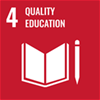
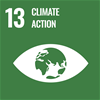
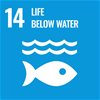
November 18, 2020
